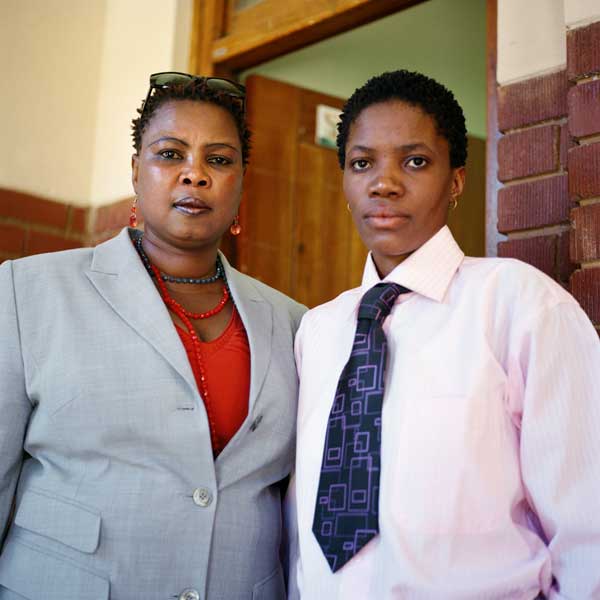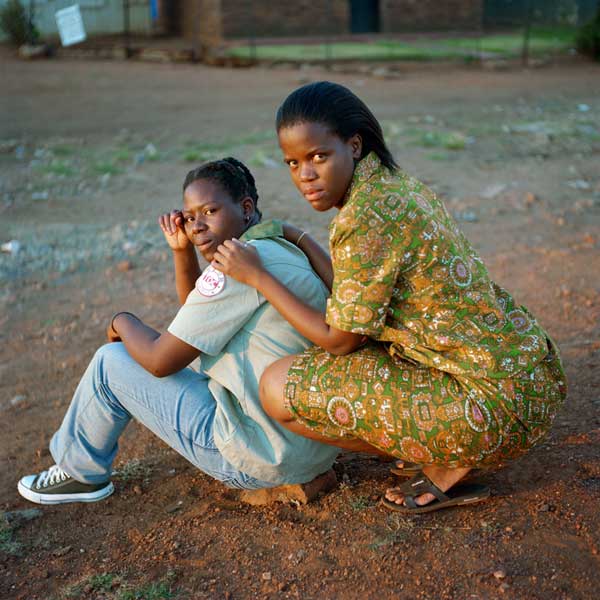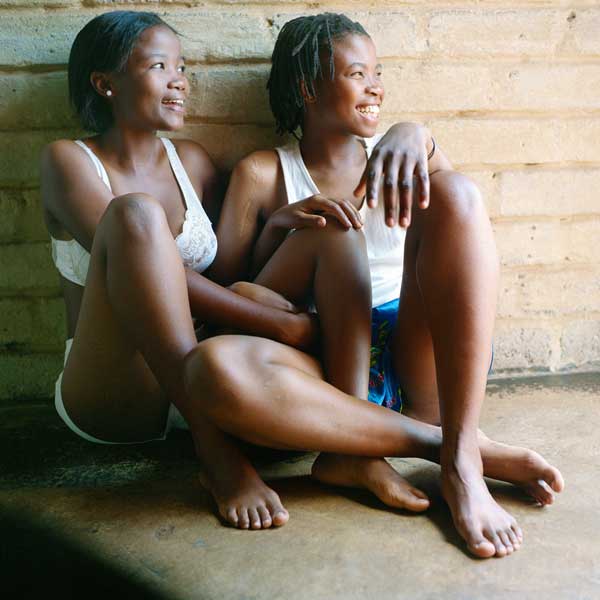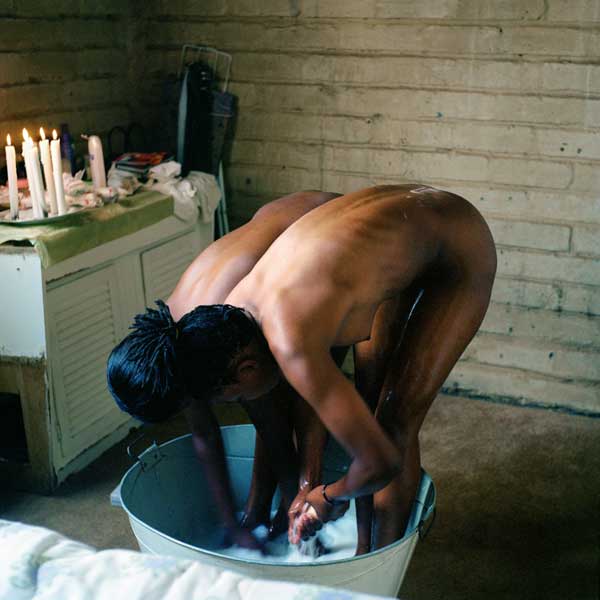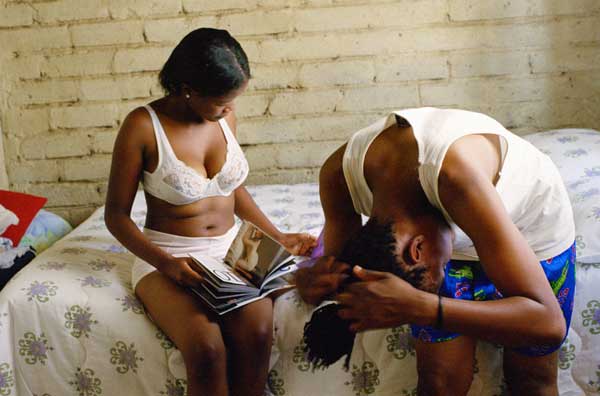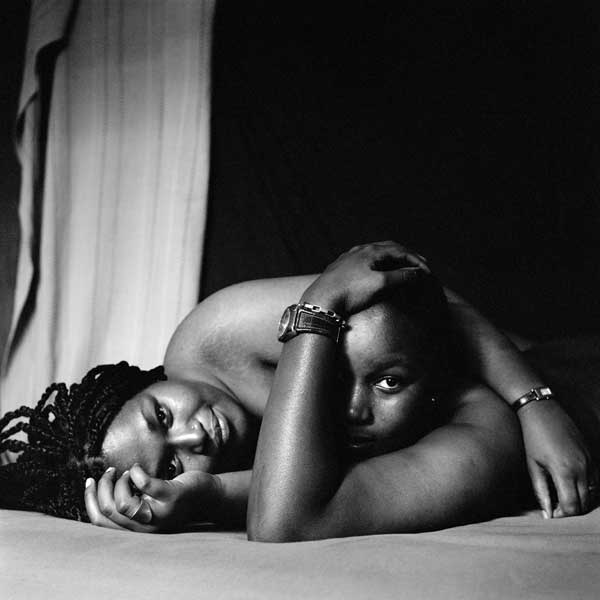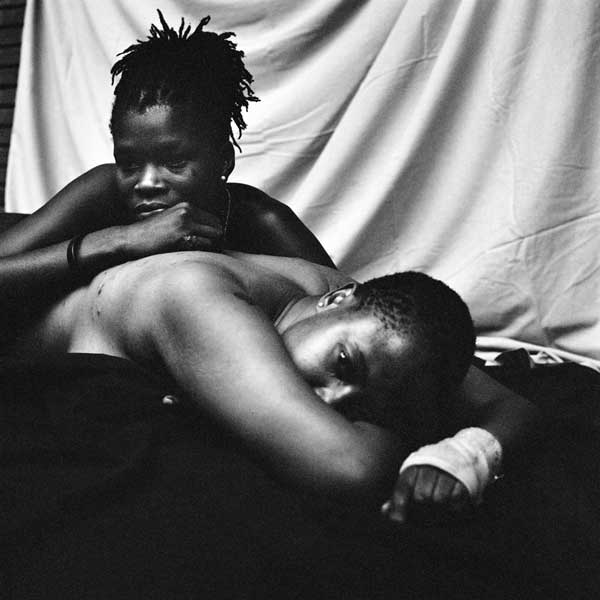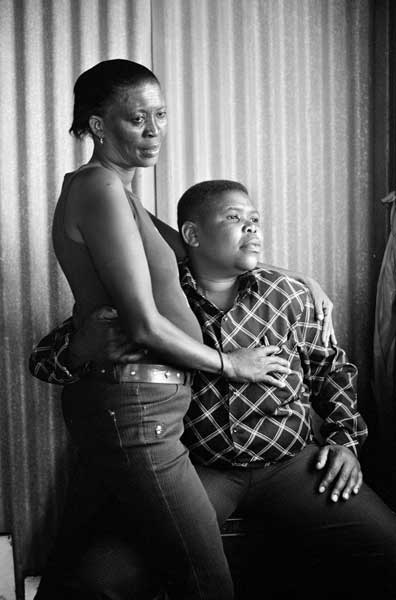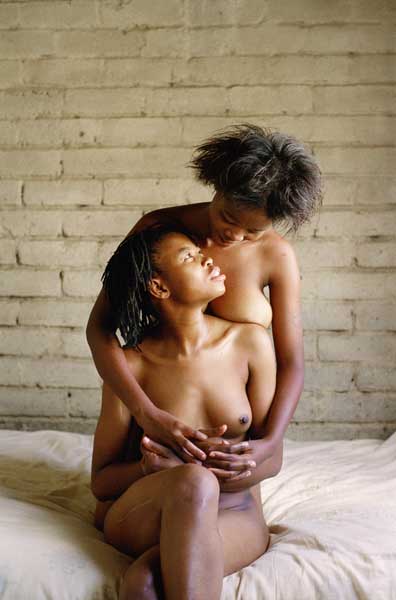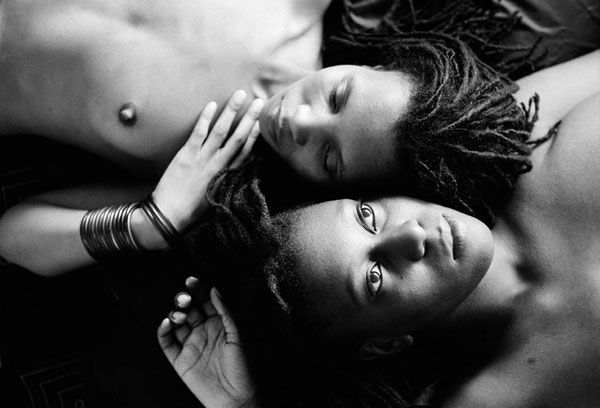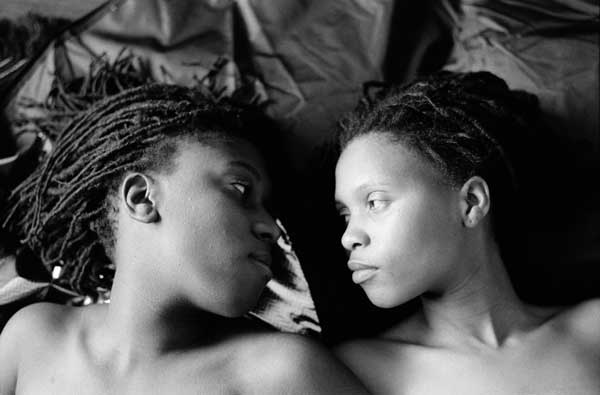I continue to bleed each time I read about rampant curative rapes in my ‘democratic’ South Africa. I bleed every time queer bodies are violated and refused citizenship due to gender expression and sexual orientation within the African continent. I constantly bleed when I hear about brutal murders of black lesbians in our townships and surrounding areas. I’m scarred and scared as I don’t know whose body will be next to be buried. I bleed because our human rights are ripped. I cry and bleed as mothers, lovers, friends, relatives lose their beloved ones, let alone the children that become orphans because of trans/queerphobic violence. We bleed, our life cycles invaded, we bleed against the will of our bodies and beings.
Zanele Muholi in Autostraddle
A prominent activist in empowerment organisations, Zanele Muholi (b. 1972) is concerned with the intimate portrayal of the lives of black lesbian women in South Africa. Of this new body of colour and black-and-white work, she writes:
Being is an exploration of both our existence and our resistance as lesbians/women loving women, as black women living our intersecting identities in a country that claims equality for all within the LGBTI community, and beyond. The work is aimed at erasing the very stigmatisation of our sexualities as ‚unAfrican‘, even as our very existence disrupts dominant (hetero)sexualities, patriarchies and oppressions that were not of our own making. Since slavery and colonialism, images of us African women have been used to reproduce heterosexuality and white patriarchy, and these systems of power have so organised our everyday lives that it is difficult to visualise ourselves as we actually are in our respective communities. Moreover, the images we see rely on binaries that were long prescribed for us (hetero/homo, male/female, African/unAfrican). From birth on, we are taught to internalise their existences, sometimes forgetting that if bodies are connected, connecting, the sensuousness goes beyond simplistic understandings of gender and sexuality.
Despite the fact that, in contrast to most other African states, our South African Bill of Rights guarantees us legal protections against homophobia, there are still no loving, intimate photographs of black lesbians. As a visual artist, one is always confronted with the politics of representation. I have the choice to portray my community in a manner that will turn us once again into a commodity to be consumed by the outside world, or to create a body of meaning that is welcomed by us as a community of queer black women. I choose the latter path, because it is through capturing the visual pleasures and erotica of my community that our being comes into focus, into community and national consciousness. And it is through seeing ourselves as we find love, laughter, joy that we can sustain our strength and regain our sanity as we move into a future that is sadly still filled with the threat of insecurities – HIV/AIDS, hate crimes, violence against women, poverty, unemployment.
In the past year, I have lost two of my friends to AIDS-related illnesses (one in April 2006 and the other in March 2007). Both of these women made herstory within the lesbian community, but because of resource politics, their stories are not publicly celebrated. Consequently, an aspect of these images is to create awareness around how we as lesbians need to take precautions when we engage sexually with other women. Researchers routinely perpetuate the wrong notion that we are less at risk for infection and transmission because we do not sleep with men. But the reality is that our fellow sistahs are raped and killed in this country every day. I wanted to capture photographs of ‚my people‘ before we are no more.
Being is part of an ongoing journey to interrogate the construction of our sexualities and selves, and then to deconstruct ourselves, identity by painfully-earned identity, in order to see the parts that make up our whole.
Trained as a photographer at the Market Photo Workshop in Johannesburg, Muholi was the winner of the Tollman Award for the Visual Arts in 2005, and received the first BHP Billiton/Wits University Visual Arts Fellowship in 2006. Her solo exhibition Only half the picture showed at Michael Stevenson in April 2006 and has subsequently travelled to the Market Photo Workshop in Johannesburg and the Afrovibes Festival in Amsterdam. Her work is included on Heterotopias, the first Thessaloniki Biennale (late May to September); on the travelling exhibition Contemporary Art Photography from South Africa 2007: Reality check; and is published in Phaidon’s Vitamin Ph, a survey of contemporary photography (2006).
Nomonde Mafunda, Key accounts co-ordinator and Tumi Ndweni, Entrepeneur, on the occasion of their civil union marriage, Krugerdorp Home Affairs office, 6 March 2007
Busi Mdaki and Malesedi Nthute, Katlehong, Johannesburg 2007
Katlego Mashiloane and Nosipho Lavuta, Ext. 2, Lakeside, Johannesburg 2007
Katlego Mashiloane and Nosipho Lavuta, Ext. 2, Lakeside, Johannesburg 2007
Katlego Mashiloane and Nosipho Lavuta, Ext. 2, Lakeside, Johannesburg 2007s
Apinda Mpako and Ayanda Magudulela, Parktown, Johannesburg 2007
Musa Ngubane and Mabongi Ndlovu, Hillbrow, Johannesburg 2007
Julia and “Mandoza” Hokwana, Lakeside, Johannesburg 2007
Katlego Mashiloane and Nosipho Lavuta, Ext. 2, Lakeside, Johannesburg 2007
Beloved II
Beloved V
Quelle Bilder:

